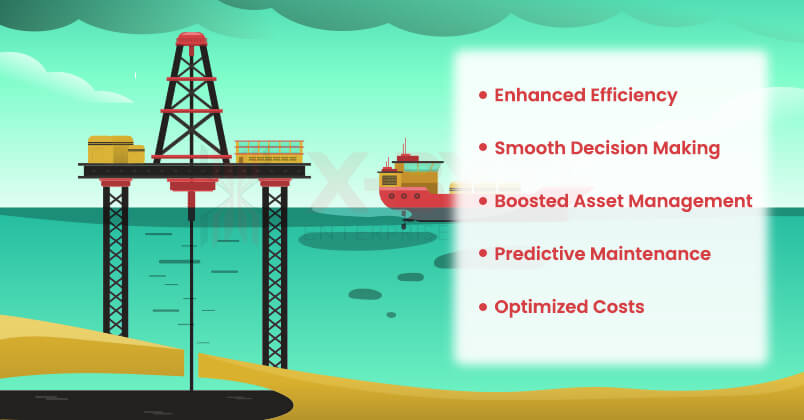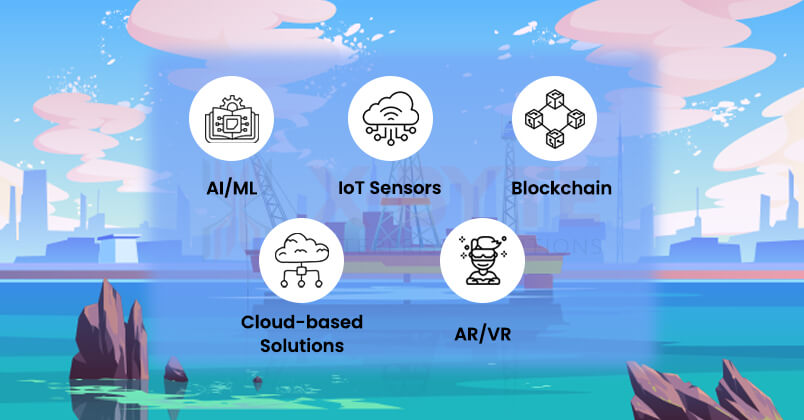-
solutinos
-
Hire
Frontend Developer
Backend Developer
-
NodeJS Developer
-
Java Developer
-
Django Developer
-
Spring Boot Developer
-
Python Developer
-
Golang Developer
-
Ruby on Rails Developer
-
Laravel Developer
-
.NET Developer
Technology
-
Flutter Developer
-
React Native Developer
-
Xamarin Developer
-
Kotlin Developer
-
Cross-Platform Developer
-
Swift Developer
-
MongoDB Developer
-
C Developer
-
Smart Contract Developers
Cloud
-
-
Services
Mobile Development
Web Development
- Work
-
Multi Services App
-
Food Delivery App
-
Grocery Delivery App
-
Taxi Cab Booking App
-
Multi Services App
-
OTT Platform APP
-
Social Media APP
-
Freelance Service App
-
Car Rental App
-
Medicine Delivery App
-
Liquor Delivery App
-
Sports Betting App
-
Online Coupon App
-
eLearning App
-
Logistics & Transportation App
-
Courier Delivery App
-
On-Demand Real Estate App
-
E-Wallet APP
-
Online Dating App
-
Handyman Services App
-
-
Process
-
Company

Quick Summary : Explore this blog to understand how digital transformation boosts performance in the Oil and gas industry. You will learn about the benefits, challenges, and emerging technologies that affect the industry. These modern approaches help energy businesses stay ahead of the competition.
The oil and gas segment manages crucial data and transportation to different regions. Keeping a secured data management platform that boosts operational efficiency is essential.
The digital transformation market in the oil and gas industry helps make smooth decisions. Monitoring and tracking digitalization in real-time becomes complex. The market provides highly secure and accurate solutions to manage large amounts of data smoothly.
What is Digital Transformation in the Oil and Gas Sector?
Stepping into digital transformation helps the oil and gas industry to use modern technology like cloud computing, AI/ML, IoT, big data analytics, and other emerging tools. This helps streamline routine operations and provides a safe environment to manage diverse datasets.
Digitalization helps smooth operations and transmit energy from the energy and oilfield to pumps by ensuring sustainability, boosting overall productivity, and taking proactive steps to reduce risks. It also helps businesses fulfill their energy requirements and specific preferences.
Cloud-enabled platforms and data consulting services help with accurate forecasting, data-driven drilling approaches, and a smooth production process. They also help automate routine activities and reduce manual efforts.
Digital Transformation Strategies for Oil and Gas Companies
Advanced-Data Analytics
Data analytics and visualization tools help make data-driven decisions by gaining advanced insights from diverse data sources. This streamlines the optimization process by ensuring enhanced collaboration.
API Integration
Integrating diverse data sources together to ensure smooth data flow helps with smooth analysis. API integration can be used to collaborate extensively with existing and advanced solutions.
Automation
Leveraging advanced automation tools improves operational efficiencies and boosts profitability. Digital transformation can be easily achieved by optimizing production processes and conducting support inspections for asset management and predictive maintenance.
Central Repository
Digital transformation helps organizations, startups, and Fortune 500 oil and gas businesses use the latest tools to gather, process, and analyze datasets. This enhanced visibility streamlines the data analysis process and prevents downtime.
Benefits of Digital Transformation in Oil & Gas Segment

Energy businesses in every industrial domain have diverse opportunities to implement digital transformation solutions. This helps all types of industries, such as upstream, downstream, and midstream, optimize equipment use. Let’s determine the diverse benefits that help streamline operations and real-time analysis.
Enhanced Efficiency
The oil and gas industry can achieve operational efficiency to reduce costs and boost productivity to stay competitive. This assists in staying adaptive to the market's energy requirements by enhancing drilling, exploration, refining, production, and smooth distribution.
Smooth Decision making
Implementing digital transformation solutions helps ensure smooth data management and integration with diverse sources. This, in turn, assists in smooth data analysis by compiling data from various sources.
Boosted Asset management
With the expertise of X-Byte Solutions, the oil and gas industry can manage assets and data smoothly. This helps provide real-time accessibility and visibility of changing market trends.
Predictive Maintenance
Advanced AI/ML and other technologies help monitor infrastructure and equipment performance. This assists in forecasting vulnerabilities and taking proactive measures to prevent downtime. The digital solution ultimately helps boost productivity and streamline operations.
Optimized Costs
Diverse activities, including maintenance, downtime, and scattered systems to manage machinery, incur costs when implementing digital systems in the oil and gas industry.
However, modern systems help optimize costs by ensuring predictive maintenance, smooth forecasting, and real-time analysis to improve operational efficiency.
Get the centralized system for your energy and oil business to ensure a strategic decision-making process.
Emerging Technologies Transforming the Oil and Gas Industry

The oil and gas industry is expanding its use of advanced technologies and tools, which help digitalize routine processes. In this section, we will understand how these technologies shape the industry's future. They foster efficiency by ensuring the use of sustainable practices and competitive strategies.
AI/ML
Advanced AI/ML tools help analyze and track data collected from various sources, such as production processes, smart IoT sensors, and environmental data. This helps identify market trends to ensure reduced downtime and a strategic decision-making process.
IoT Sensors
Advanced IoT app development solutions can seamlessly integrate into pipelines, tanks, and other equipment to ensure real-time monitoring. This assists in tracking location and potential hurdles. This modern technology allows operators to take corrective measures to optimize logistics performance.
Blockchain
Modern Blockchain technologies in the Oil and gas industry help improve inventory security, management, and traceability. This helps ensure the monitoring of product movement by establishing secure transactions and easy tracking.
Cloud-based Solutions
Automation for Oil & Gas companies can be seamlessly done using cloud technology to ensure easy accessibility to the supply chain, shipments, orders, and deliveries. Using the cloud is the most expanding digital transformation strategy for oil and gas companies to streamline their data management.
AR/VR
AR/VR technology helps enhance the efficiency and effectiveness of diverse operations. Augmented reality ensures uninterrupted support and provides real-time accessibility to guidance from an expert team. AR & VR app development solution also offers virtual simulations and 3D forms to manage the supply chain effectively in a controlled environment.
Key Challenges and Solutions in Oil & Gas Digital Transformation

The oil and gas segment faces several challenges, from complex mining and drilling to scattered communication and a lack of real-time monitoring. Let’s analyze challenges and their potential solutions to ensure smooth operations:
Market Volatility
The modern oil and gas industry faces the problem of monitoring uncertainties in the fluctuation of product prices. This highly impacts the revenue and financial health.
This can be resolved by creating flexible business strategies that ensure a streamlined flow of processes, manage market fluctuations, and boost productivity.
Environmental Concerns
Constricted regulations create financial and operational hurdles for the smooth functioning of the oil and gas industry.
It requires implementing advanced tools to implement sustainable strategies. Reducing unnecessary expenses is also necessary to maintain the required environmental standards.
Operational Complexity
The major challenges include long drilling durations, inaccurate placemen, and machinery downtime. These incur more exploration costs, which leads to operational difficulties in the oil and gas industry.
The drilling and exploration process in the oil and gas industry requires time monitoring to manage complexity. This involves the utilization of advanced tools and machinery, as well as reliable and accurate datasets.
Hazardous Environment and Accidents
Heavy machinery and hazardous gas pose a major risk of accidents and health problems in downstream operations.
Accidents can be easily prevented by taking proactive measures to reduce health issues, environmental harm, and employee productivity. Environmental hazards can also be prevented by using eco-friendly and sustainable practices.
Lack of Enhanced Data Visibility
Diverse organizations lack comprehensive data insights to refine inventory transport strategies. This also affects operational efficiency and compliance with ethics and safety rules.
Digital transformation in Oil & Gas helps in monitoring routine operations to ensure smooth decision-making.

Boost the operations and productivity of your oil and gas business by implementing advanced technology.
Connect with Experts Connect with ExpertsHow is Digital Transformation Impacting the Oil and Gas Industry?
The oil and gas industry transforms into digital transformation to foster growth and navigate diverse opportunities. Below mentioned are a few ways to step into operational excellence with digital solutions:
Adoption of Cloud-native Solutions
Cloud-native systems help automate oil and gas companies with streamlined processes. Cloud platforms ensure smooth data integration, management, and easy accessibility. This empowers diverse organizations with the scalability of resources to improve collaborative activities using dynamic datasets.
Innovative Organizational Framework
Recent developments can help build a teamwork culture, accomplish the objectives of sustainable growth, and guarantee that all solutions are optimal. An innovative framework to support business process improvement can become critical for the oil and gas industry.
Boosted Cybersecurity Measures
Nevertheless, due to the developments brought by modern technology, the need for strong security measures cannot be overemphasized. These strategies offer bundled digital solutions with various layers of safety and security features, which help guarantee better data accuracy and retrievability, and protect against cyber risks.
Asset Management using Digital Twins
It allows for planning and predicting maintenance requirements, online monitoring of asset performance, and continued analysis. The digital twin is a technology that simplifies the oil and gas industry's processes, especially asset management.
Collaborate with Tech Experts
Working with leading service providers allows for the design and implementation of solutions. When the oil and gas industry engages professionals like X-Byte, it can receive progressive systems foriness automation.
Conclusion
The market for digitalization in the oil and gas industry aims to ensure accurate and fast exchange in connection with high-tech security. This aids in monitoring operational progress and making fluid architecture decisions. Technology has significantly shifted the industry and averted uncertain situations.
Thus, diverse challenges are solved to maintain competitive advantage while implementing digital changes and using the potential of modern technologies. Therefore, X-Byte provides custom software development that positively impacts stakeholder companies' performance and functioning and refines the oil and gas industry.
Frequently Asked Questions
-
How do predictive analytics optimize
Oilfield operations?
Business Intelligence enhances oilfield productivity by indicating potential problems, forecasting operational problems/solutions, and providing overlay knowledge of the problems encountered with the help of analytical tools. It helps in:
- Preventing equipment failures
- Optimizing drilling and production
- Reducing costs
- Improving safety
-
What is the role of cloud computing in Oil
& Gas digitalization?
Cloud computing plays a pivotal role in boosting digitalization in the Oil & Gas industry by offering:
- Collecting operation data from other areas to ease its analysis and retrieval.
- Flexibility to adapt, grow, and increase data processing efficiency without a substantial infrastructure investment.
- To allow cross-functional teams to work together in real-time
- Real-time analysis to support business decisions.
- Minimizing fixed IT costs and bringing more elasticity in deploying applications.
-
How can digital transformation solutions be implemented in the
oil and gas industry?
Implementing digital transformation in the Oil & Gas sector involves the following steps:
- Identify existing digital maturity and gaps.
- Align digital transformation objectives with business priorities, like reducing costs or increasing efficiency.
- Adopt emerging technologies tailored to specific challenges.
- Focus on change management to embrace new technologies.
- Collaborate with technology providers and consultants for expertise.
- Monitor performance metrics to evaluate the success of digital initiatives.
-
How is digital transformation impacting the oil and gas
industry?
Digital transformation is revolutionizing the Oil & Gas industry by:
- Improving the operation capabilities and accuracy of results.
- Real-time data analysis enhances production and monitoring.
- Innovative control systems anticipate and avert risks and unfavorable occurrences.
- Reducing the cycle time and keeping the downtime to the minimum yields major savings.
- Promoting activities such as carbon footprint through the use of energy-efficient technologies.
